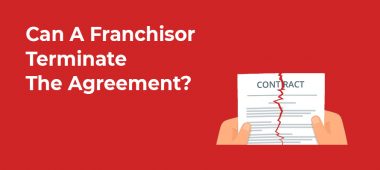Franchising is a marketing concept used to broaden the scale of business expansion. So here, the franchisor owns the brand name of the company or trademark; and a franchisee operates based on its ideology or the concept for expanding the business.
Franchising is not a balanced partnership, as the franchisor has legal advantages over the franchisee. But, under certain conditions like favorable legal situations, financial models, and decent market analysis, franchising can be a vehicle of success for both franchisees and franchisors.
The concept of Franchise
Franchising allows the franchisor to have a global presence without too much effort. In the same way, the franchisee, who is new to the whole business setup doesn’t have to start from ground zero. The franchising company always has its customer base.
It is an unequal partnership unless the contract between two people or organizations is clearly specified. Franchisees typically have to pay franchisors a one-time upfront franchise fee and continuous royalty fees.
Franchisors are legally prohibited from dictating the prices charged by franchisees directly or indirectly which is one of the downsides of franchising. To explain further franchisors cannot set a minimum or fixed resale price within an agreement. Also, franchisors cannot impose promotional or discount prices on goods sold by franchisees. If a franchisor wants to implement a promotion, it can only do so where the franchisee has agreed to participate.
Role of franchisee
A franchisee has five primary duties for the success of the system in which they are granted a franchise:
- To protect the franchised brand by running the franchise in strict subordination with system operating standards.
- Building a strong consumer base by selling approved products and services synonymous with the franchise.
- Ensuring superior customer service.
- Promoting and advertising the goods and services according to the franchisor’s guidelines.
- To employ and train the employees so that the unit is active all the time.
How can one be a Franchisee?
There are certain key criteria one must think about before stepping in as a franchisee.
Start-up capital
The first and foremost thing is the cost. It is important to know how much it might take to start the business which includes your purchase cost, inventory cost, salaries of the employees, and cost to buy the rights of franchise. Don’t undervalue the required money.
Find the things which you are passionate about
Before starting your own franchise be sure you are at least interested in or you can manage the requirements set forth by the franchisor. If the things which you are passionate about aligning with the theme of franchise, it will be highly beneficial.
Effort and dedication is required
Certainly starting a business is no joke. But with the franchise concept, it’s just a bit easier. Although certain franchises are seasonal, meaning customers are more likely to visit the store during those months. Also, during the start of any franchise store, a long duration of toil will be required. So it’s necessary to know if you are ready for that.
What type of franchise are you interested in?
Another important step is to avoid rushing into things. It is important to research the franchisor- their statistics, past performance, requirements also inquiry other franchisees about their relationship with the franchisor, their future plans, etc..
Ask Questions
The more information you have the better. Employ help whenever needed. Like what kind of obstacles are faced by other franchisees? How did they overcome them? Why do some franchisees fail?
What were their mistakes? How reliable are the franchisors? and so on.
Can Franchisor dictate pricing?
To a certain extent, it is possible for them to dictate it. They fix the maximum resale price of their products above which the franchisee is not authorized to sell. Another possibility is that they can provide a list of recommended prices. But the franchisors are legally prohibited by directly or indirectly influencing the choice of the franchisee.
If the franchisors try to dictate too much, then the whole concept of franchising will become invalid. Freedom of the franchisee regarding certain decisions is a key aspect or rather the essence of the franchise concept.
The franchisor can, however, meddle with the franchisee’s engagement if they sense any threat to the brand image. Whatever it may be, the rules and regulations on both ends should be well documented and have both parties nod.
If a franchisor wants the franchisees to sell products for a certain price, or prohibits the franchisee to sell the products below a certain minimum level, an offense may be registered, as per the Competition Act. It is a criminal offense and the results of such demand are irrelevant in gauging the franchisor’s intentions.
The franchise owners’ understanding to change in price expenditure laws is evaluating necessary changes. So, it is fairly common now to see a franchise agreement that allows the franchisor to impose the prices at which a franchisee must sell products and services of the company.
Variables that depend on prices
The brand and the price of its products is directly linked. Most of the time, an esteemed brand sells its product at a higher price than its peers due to its brand name. Also, it is observed that higher prices are perceived to have higher quality and vice-versa.
Hence, if a franchisee decides to charge a lower price than which is synonymous with the brand, it may or may not tamper with the brand’s image. So most franchisors are in favor of eliminating this possibility which is why they are interested in controlling the prices.
On the other hand, the franchisee might have a more nuanced perception of the interests and choices of the population residing in a particular area more than the franchisor. So any restriction to pricing might stun the growth of the business in that area that might lead to franchisee incurring losses and finally an inability to pay royalty fees.
Most commonly used pricing policies by the franchisor-
- Suggested Retail Pricing – Franchisors are free to provide a suggestion regarding prices but they are not supposed to demand the franchisee.
- Unilateral Pricing- In which the franchisor announces a minimum resale price without any approval from the franchisee. Also, they refuse to make further sales with the franchisee who sells below the minimum resale price.
- Minimum Advertised Price- It is the lowest price the franchisee can advertise about a certain product, which is set by the franchisor. The franchisee is not allowed to advertise it for a price lower than the one put up by the franchisor.
The code of conduct
The franchisee is allowed to back out of the franchise agreement within the cooling-off period. Once it’s over, the termination of contract rests with the franchisor and they can sue you for abandonment if you back out later without their consent. There are certain exceptions though like if the franchisor breaches any agreement or with the approval of the franchisor.
When a franchisee terminates with the consent of a franchisor, they receive a “deed of release” or “deed of surrender” indicating the termination.
Though you can also exit out of a contract by selling the business but the franchisor’s consent is still mandatory.














